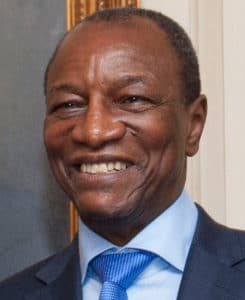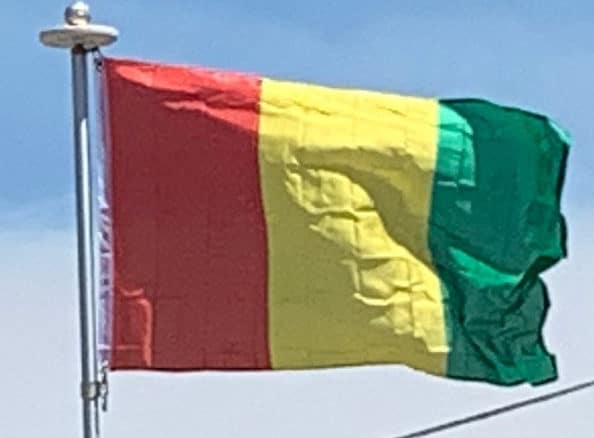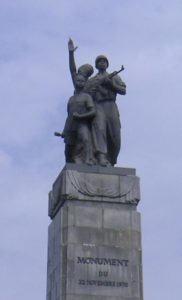
On 22 November 1970, Portuguese forces from neighboring Portuguese Guinea staged Operation Green Sea, a raid on Conakry by several hundred exiled Guinean opposition forces. Among their goals, the Portuguese military wanted to kill or capture Sekou Toure due his support of the PAIGC, an independence movement and rebel group that carried out attacks inside Portuguese Guinea from their bases in Guinea. After fierce fighting, the Portuguese-backed forces retreated, having freed several dozen Portuguese prisoners of war that were being held by the PAIGC in Conakry but without having ousted Touré. In the years after the raid, massive purges were carried out by the Touré government and at least 50,000 people (1% of Guinea’s entire population) were killed. Countless others were imprisoned, faced torture, or, often in the case of foreigners, were forced to leave the country (sometimes after having had their Guinean spouse arrested and their children placed into state custody).
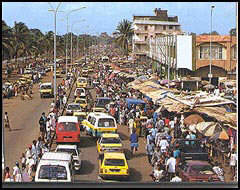
A declining economy, mass killings, a stifling political atmosphere, and a ban on all private economic transactions led in 1977 to the “Market Women’s Revolt“, anti-government riots that were started by women working in Conakry’s Madina Market. This caused Touré to make major reforms. Touré vacillated from supporting the Soviet Union to supporting the United States. The late 1970s and early 1980s saw some economic reforms but Touré’s centralized control of the state remained. Even the relationship with France improved; after the election of Valéry Giscard d’Estaing as French president, trade increased and the two countries exchanged diplomatic visits.
Sékou Touré died on 26 March 1984 after a heart operation in the United States, and was replaced by Prime Minister Louis Lansana Beavogui, who was to serve as interim president pending new elections. The PDG was due to elect a new leader on 3 April 1984. Under the constitution, that person would have been the only candidate for president. However, hours before that meeting, Colonels Lansana Conté and Diarra Traoré seized power in a bloodless coup. Conté assumed the role of president, with Traoré serving as prime minister until December.
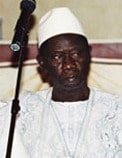
Conté immediately denounced the previous regime’s record on human rights, released 250 political prisoners and encouraged approximately 200,000 more to return from exile. He also made explicit the turn away from socialism. This did little to alleviate poverty and the country showed no immediate signs of moving towards democracy.
In 1992, Conté announced a return to civilian rule, with a presidential poll in 1993 followed by elections to parliament in 1995 (in which his party—the Party of Unity and Progress—won 71 of 114 seats.) Despite his stated commitment to democracy, Conté’s grip on power remained tight. In September 2001, the opposition leader Alpha Condé was imprisoned for endangering state security, though he was pardoned 8 months later. He subsequently spent a period of exile in France.
